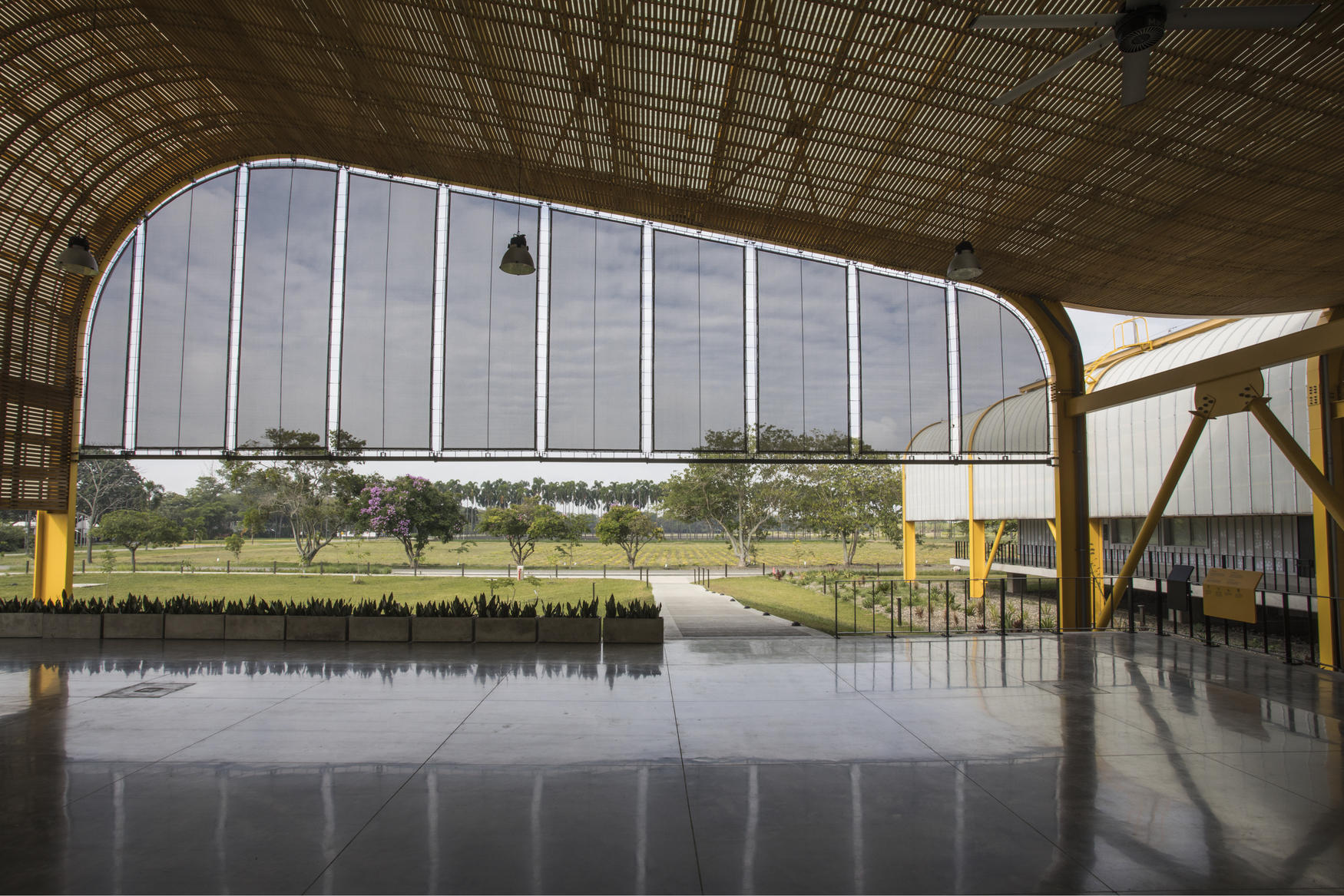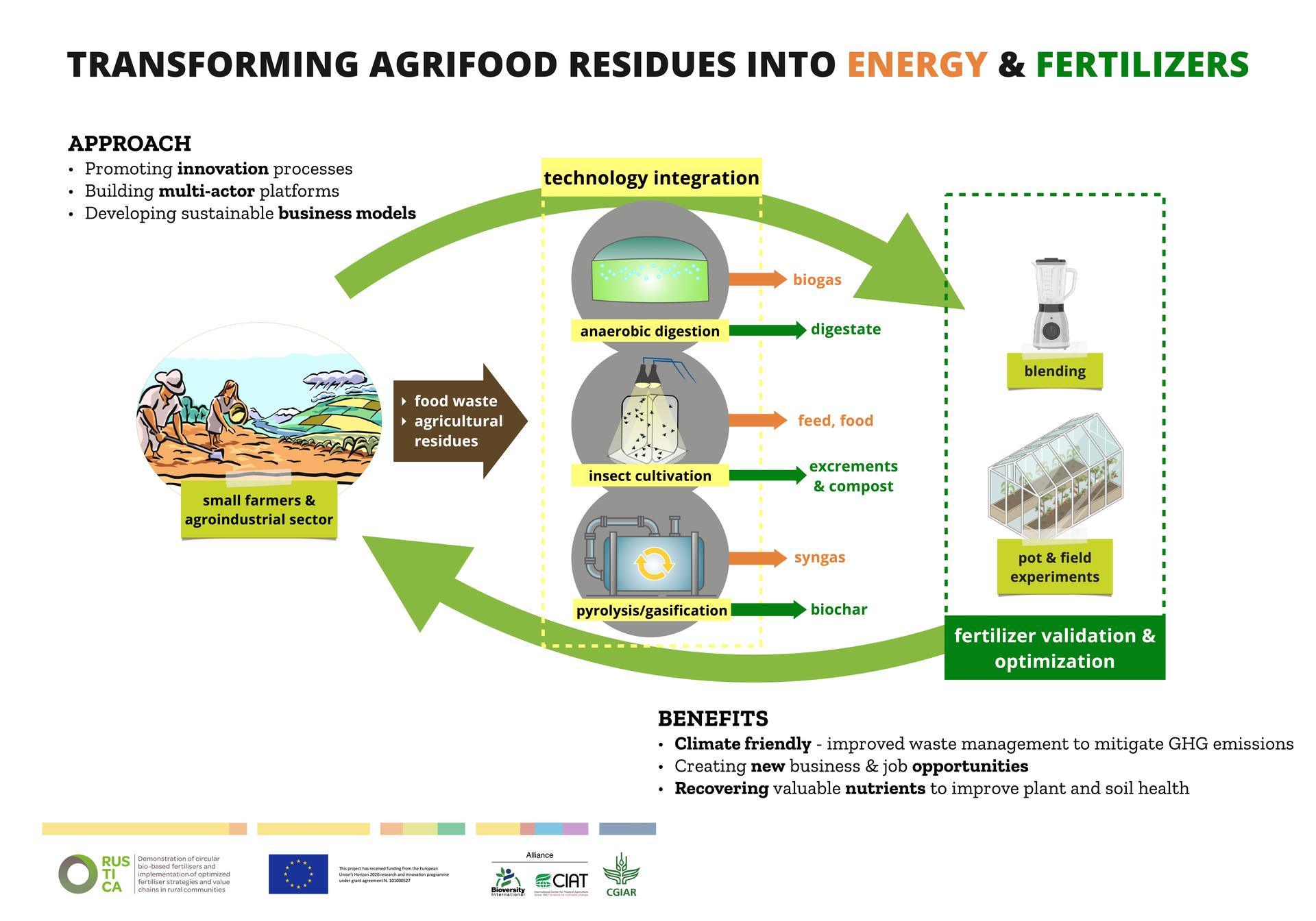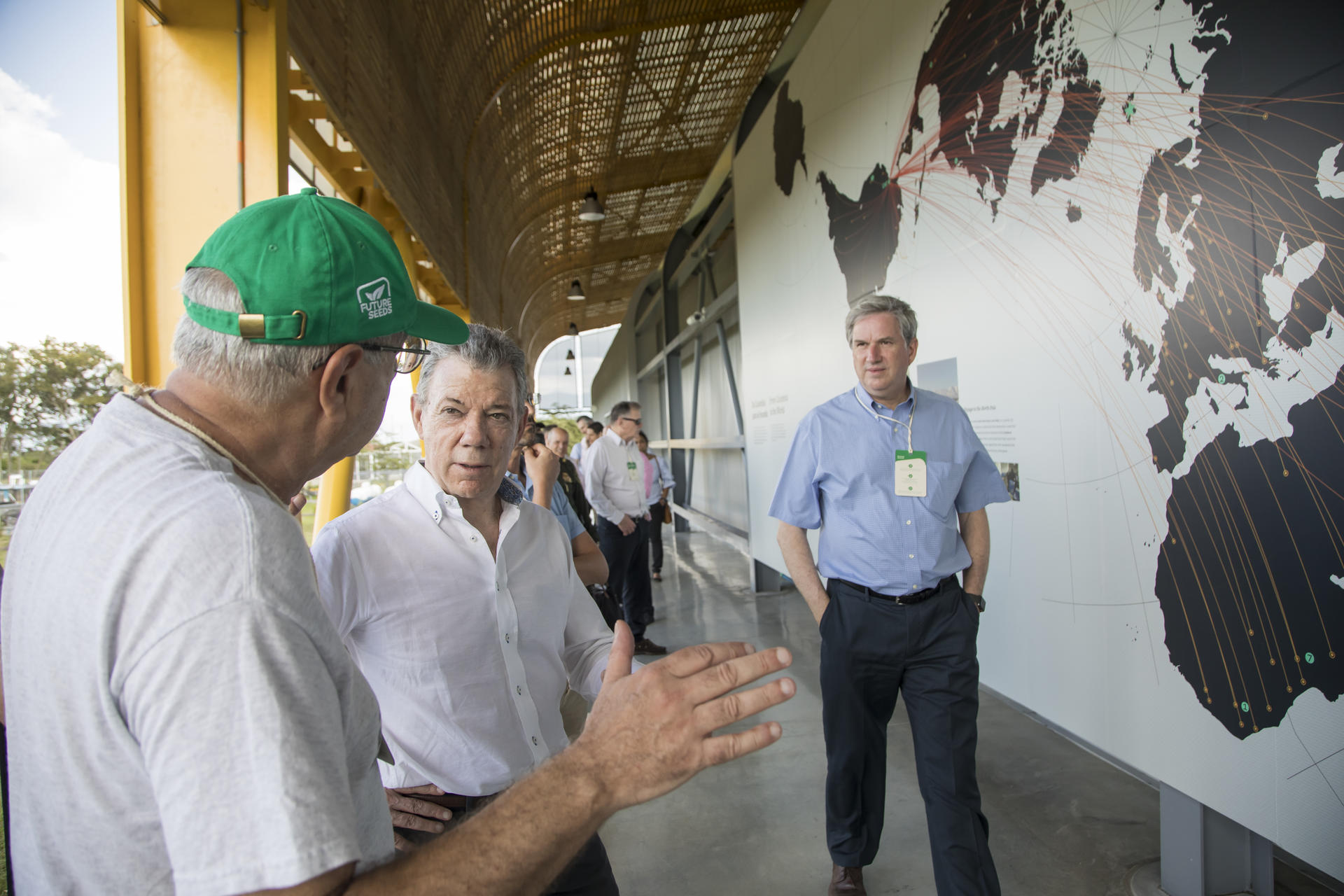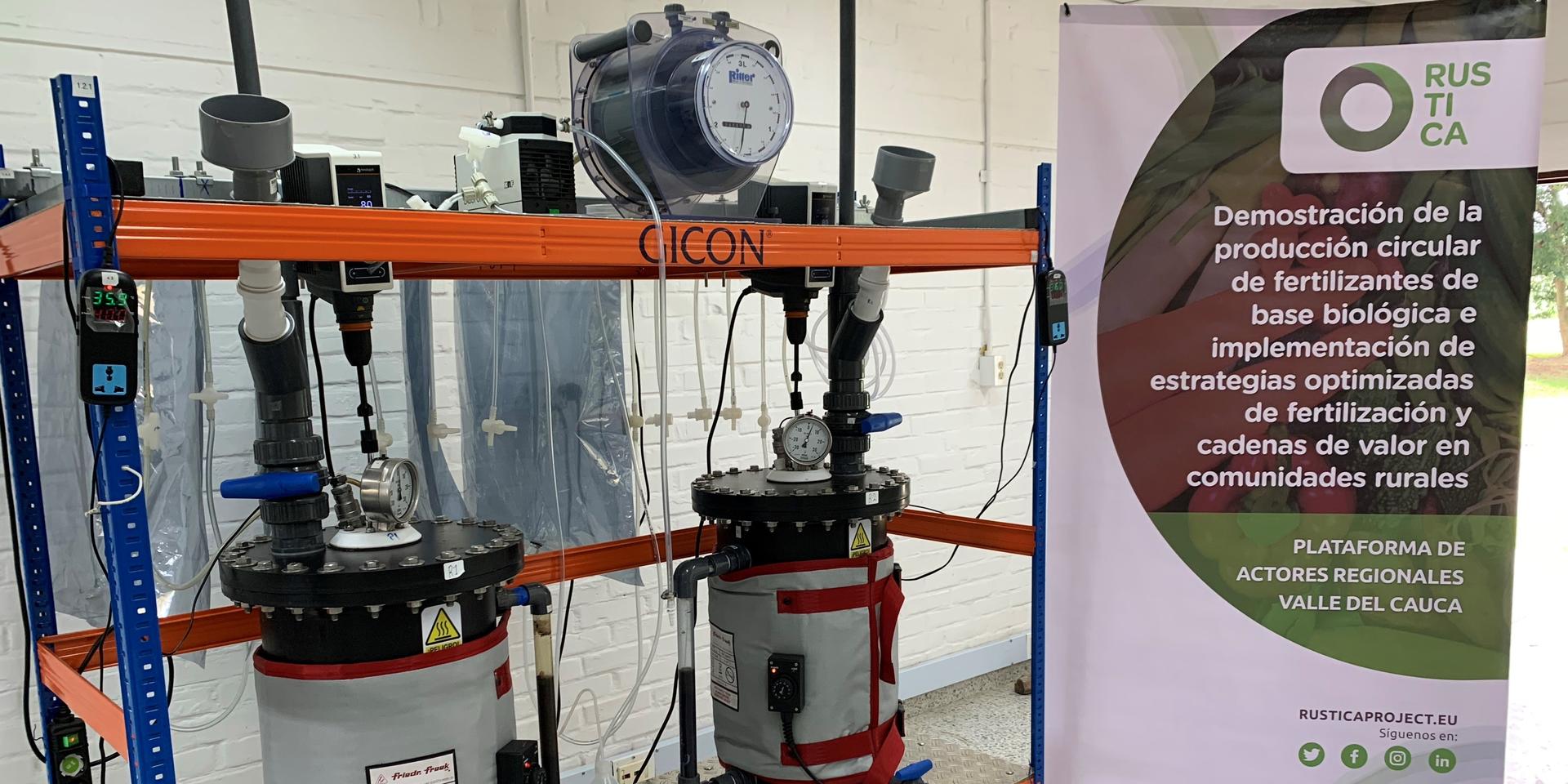Blog The RUSTICA project at the Science Day of the Alliance of Bioversity International & CIAT

On March 14, 2022, the event “The Science of the Future for the Transformation of Food, Land, and Water Systems took place at the Americas hub of The Alliance of Bioversity International and CIAT in Colombia.
This event was organized at the occasion of the inauguration of the new seed bank "Future Seeds" and attracted more than 150 visitors. Alliance researchers Mirjam Pulleman and Guillermo Peña presented the RUSTICA project, explaining how they are working on the optimization of different waste valorization technologies for the development of bio-based fertilizers: anaerobic digestion, insect farming, and biochar production.

Fig. 1. Technologies for the transformation of agri-food waste into energy and fertilizers that have been prioritized for the region Valle del Cauca in Colombia.
A very special visitor that day was the former president of Colombia and Nobel Peace Prize winner, Juan Manuel Santos. The former president visited the biogas pilot plant, where we demonstrated the experiments that we are conducting with local waste streams. We discussed anaerobic digestion technology, opportunities to promote circular agriculture and the challenges of implementing large-scale biogas projects in Colombia. We also talked about the dependence of Colombian agriculture on imported fertilizers in the face of rising fertilizer prices and its vulnerability to socio-economic disturbances such as the current conflict in Ukraine. It has been reported that forty-two percent of the fertilizers imported into Colombia come from Russia and Ukraine.
Despite the measures announced by the government earlier this year to reduce the cost of importing agricultural inputs, the war in Ukraine will have a significant impact on already rising food prices due to the lack of choice of suppliers. While this conflict is already having terrible consequences, it provides an impetus to find alternatives. The world, including these Andean countries, can start producing fertilisers themselves, turn to organic fertilisers, accelerate the transition to renewable energy and find new trade routes.
Ministry of Agriculture, Nature and Food Quality, Netherlands. 2022. How will the conflict between Russia and Ukraine affect the agri-food sector in Colombia, Ecuador and Peru?


biogas plant - RUSTICA
In addition to the need to make the transition to a more climate and environmentally friendly agriculture, it is urgent to look for alternative sources of nutrients and to implement models for recycling of waste from the food chain to return nutrients to the soil. We discussed mechanisms that can promote the implementation of biogas plants to generate energy and fertilizers, including alignment of government entities, research centres and the private sector, economic incentives, and a paradigm shift in the management of digestate in Colombia which is required to allow its application as a fertilizer or amendment for soil improvement.
These and other opportunities for demonstration and interaction are highly valuable for RUSTICA, as they allow us not only to showcase this global initiative but also to gather perspectives from different actors, strengthen regional networks and co-develop participatory solutions to achieve circular and sustainable fertilizer and soil management.
The RUSTICA project seeks to validate and demonstrate technologies to convert agri-food waste into novel fertilizers to close the nutrient cycle in five regions. Four of them are in Europe and one is in Colombia: Valle del Cauca. Applying participatory methodologies, in interaction with multiple actors of the food production chain, RUSTICA's interdisciplinary team is developing feasibility studies and building business models for the integration of the technologies in each of the regions. The results of the project will contribute to establishing roadmaps for the transition towards circular agriculture, where waste valorisation will bring new opportunities for Colombian agriculture.
